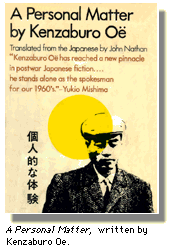 |
So far 12 Japanese people have won Nobel Prizes.
The first was Hideki Yukawa, who won the prize for physics in 1949. At
the time he was a professor at Columbia University in New York City. In
1965, Shin'ichiro Tomonaga, a professor at the Science University of Tokyo,
also won the prize for physics, as did Reona Ezaki in 1973 (he was then
doing research at the Watson Laboratories of IBM) and Masatoshi Koshiba,
professor emeritus at University of Tokyo, in 2002. Professor Susumu Tonegawa
of the Massachusetts Institute of Technology (MIT) won the prize for physiology
and medicine in 1987. The chemistry prize, meanwhile, was won in 1981
by Professor Ken'ichi Fukui of Kyoto University and in three successive
years by Japanese researchers from 2000 - first by Hideki Shirakawa, professor
emeritus at Tukuba University, in 2000; then by Professor Ryoji Noyori
of Nagoya University in 2001; and by Koichi Tanaka, a researcher with
Shimadzu Corp., in 2002. In fact, 2002 marked the first time that Nobel
Prizes have been awarded to two Japanese - Koshiba and Tanaka - in the
same year, a feat that was celebrated widely across the country.
Eisaku Sato, who was prime minister of Japan for almost eight years from 1964 to 1972, was awarded the Nobel Peace Prize in 1974 for his contribution to Japan's diplomacy of peace and rejection of nuclear weapons.
 In the
field of literature, Japan has produced two Nobel laureates. The first
was Yasunari Kawabata, author of Snow Country
and The Izu Dancer,
who won the prize in 1968. The second was Kenzaburo Oe, whose novels
include The Silent Cry
and A Personal Matter;
he received the award in 1994. In the
field of literature, Japan has produced two Nobel laureates. The first
was Yasunari Kawabata, author of Snow Country
and The Izu Dancer,
who won the prize in 1968. The second was Kenzaburo Oe, whose novels
include The Silent Cry
and A Personal Matter;
he received the award in 1994.
|